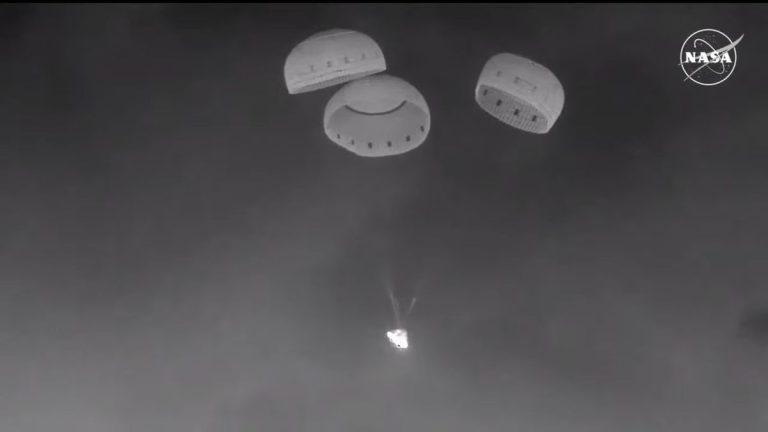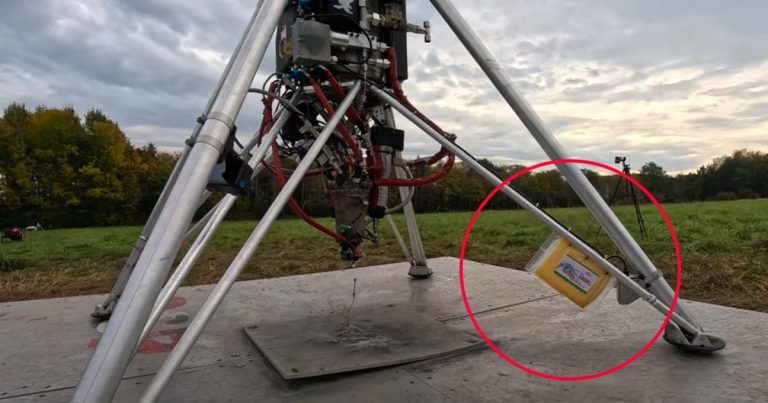
Virgin Group Puts Another $20 Million into Struggling Virgin Orbit (Image Credit: Payload)

The Virgin Group has put another $20 million into Virgin Orbit (NAS: VORB) less than seven weeks after pumping $25 million into the struggling launch provider. The latest infusion came through the sale of a senior secured convertible note to Virgin Investments Ltd.
Virgin Orbit has struggled to ramp up flights of its LauncherOne booster while dealing with dwindling cash reserves. The rocket is air launched from a modified Boeing 747 aircraft.
Virgin Orbit successfully launched two times in 2021 after LauncherOne failed on its maiden flight in 2020. The company launched only twice this year, well short of the four to six flights it had planned.
The company’s first launch from outside the United States was to have taken place earlier this year from Spaceport Cornwall in England. Regulatory delays and technical problems have delayed that flight until 2023.
The company’s cash and cash equivalents dwindled from $194.2 million at the end of 2021 to $71.2 million at the end of the third quarter on Sept. 30.
Virgin Orbit received a $25 million investment from Richard Branson’s Virgin Group on Nov. 4, three days prior to reporting third quarter revenue of $30.9 million and a net loss of $43.6 million. The company’s net loss was $139.5 million for the first nine months of 2022.
On Nov. 23, Virgin Orbit announced it has abandoned plans to sell additional securities “due to current market conditions.”
“Virgin Orbit Holdings, Inc….today announced that it evaluated the possibility of conducting an offering of its securities. Due to current market conditions, the Company has elected not to proceed with an offering. Any future capital raising transactions will depend upon future market conditions,” the company said in a press release.
Virgin Orbit announced the decision late in the afternoon of Nov. 23 on the eve of the four-day Thanksgiving holiday weekend in the United States. Companies will often release bad news at such times when people are distracted by other activities.
Rising interest rates and weaker economic conditions have made raising funds more difficult. Virgin Orbit’s stock closed at $1.78 on Tuesday. The stock was worth $8.525 when it began trading on Nasdaq on Dec. 30, 2021. It peaked at $11.28 on Jan. 11.
Virgin Orbit began trading on Nasdaq at the end of last year after merging with a special purpose acquisition company (SPAC) named NextGen Acquisition Corp. II. A SPAC is a “blank check” company that is already publicly traded; the investment vehicle’s only purpose is find a company to take public under its own name. A SPAC typically has two years to complete a merger or to return investors’ money. Investors can ask for their money back if they don’t like an approved merger deal.
Virgin Orbit and NextGen had planned to raise $483 million, with $383 million coming from SPAC investors and $100 million from outsiders. The total amount raised was only $228 million. Only $68 million came from the SPAC, indicating that many investors asked for their money back rather than put their money into Virgin Orbit.
The Virgin Group and Mubadala Investment Co. invested an additional $60 million to raise the amount provided by outsiders to $160 million. Mubadala is the sovereign wealth fund of the Abu Dhabi government and a co-owner of Virgin Orbit.

Virgin Orbit went public near the end of a wave of space SPACs that kicked off three years ago by its sister company, Virgin Galactic (NYS: SPCE). Branson’s space tourism company began trading on the New York Stock Exchange on Oct. 28, 2019, after merging with a SPAC run by Silicon Valley billionaire Chamath Palihapitiya. Virgin Galactic stock hit an all-time low of $3.64 on Tuesday amid continuing delays in the start of commercial suborbital spaceflights.








